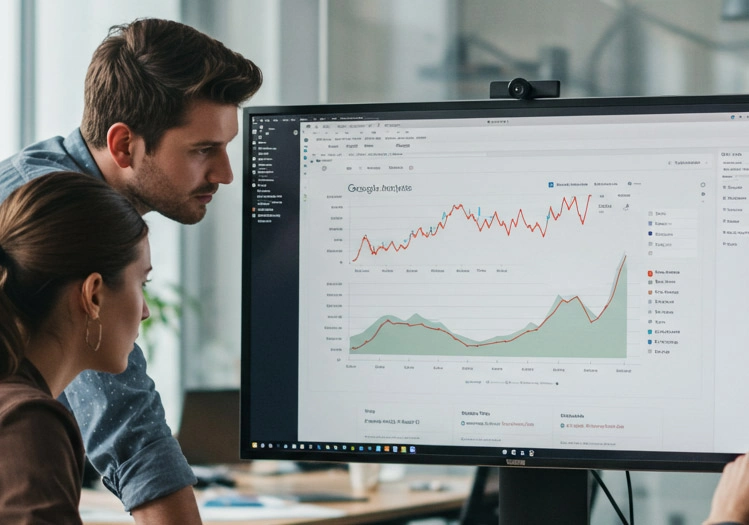How to speed up your WordPress website yourself and why it is important
Posted on
- 3 September 2021
In the era of Artificial Intelligence (AI), digital currencies, the general Internet of Things (IoT) and 5G networks, it is only natural that all webstes should be up to speed.
The digital era has entered “technological hyperdrive”, and eCommerce stores can’t afford to lag behind, especially with the ease of purchasing via smartphone. In fact, in the last six months of 2020, 79% of smartphone users made a purchase from their phone, and every one of those users was looking for a quick and efficient way to buy their chosen product.
The mobile-first user experience, which favours mobile browsing over the use of laptops and desktops, has made WordPress site speed imperative to store success. Google now provides a page experience score which evaluates how well your site is functioning in terms of functions like speed, with slow speeds being one of the main causes of high website bounce rates (and, consequently, lower sales).
More and more people are making purchases on-the-go and away from their PC’s, and your eCommerce store simply cannot lag behind on this vital function.
So, how do you ensure your WordPress is up to cutting-edge yourself? Well, here are a few tips and tricks you can do to increase your WordPress site speed.
Note: if you would like to enhance this even further by improving hosting speeds please let us know.
Limit the use of plugins
It’s a simple fact that every plugin you add to your WordPress site will increase its loading times. Although plugins have their merit, implementing handy functions like contact forms, analytical insights, SEO and more, the downside of this is that the more plugins you add, the slower your site is going to be.
So, how do you remedy this problem? After all, you need those handy plugins to run a comprehensive website, right?
Well, not necessarily.
There is an obvious remedy for this problem: ask yourself, “do I need this plugin? And is this plugin achieving its intended results?” For example, if you have an analytics plugin that you simply don’t use – get rid of it!
A web design company that have web developers building you a website with a heap of plugins are rookies and not proper devs.

Remove render-blocking JavaScript & CSS files
When a customer visits your website, they are creating a signal for each and every script on your website. Unfortunately, when your site has an abundance of plugins and themes, these scripts form a queue that can have a disastrous impact on your site speed.
These are called render-blocking JavaScript and CSS files, and they should be avoided wherever possible.
So, how do you get rid of them?
It may sound contradictory, given our penchant for dissing plugins, but you have at your disposal a plugin that can actually alleviate your website of these naughty render-blocking files: “Asset CleanUp”. This plugin essentially minimises the amount of JavaScript/CSS you have on your website, thus freeing up the queue and improving site speed.
It’s that simple, and that effective – get around it!
Get that cache money
Caching is one of the ultimate ways to optimise your site speed. Why? Because it stores a copied version of your site script close to the user so that they can quickly access and download your site. It works as a way of reducing internet traffic from servers and can be highly beneficial for any eCommerce store owner who takes the time to implement its powers.
The best way to implement a sound caching system is through (here we go again) a plugin called “WP Optimize”. Built around the world’s fastest caching engine, WP Optimize is designed to help you clean and optimise your database, compress your images and cache your pages for ultra-fast loading times!
This is a truly effective yet simple tool that can quickly improve your page load times, so why not give it a go?
Limit those third-party scripts
Third party scripts like Google Analytics and Tag Manager are great for many reasons, but maintaining high loading speeds ain’t one of them. This essentially slows down your site’s loading speed in a similar way all those extra plugins do: a third party script produces a new HTTP request that the browser has to make to create the page.
So, we return to that same important question: “do I need this script? Is it helping me reach my eCommerce goals?” If you have always had other analytics scripts installed but have never found yourself using it, give it the flick – it’s only weighing you down!
Compress your images
Image compression reduces the file size. The benefit of this? The ability to produce a rich, vibrant, image-heavy website without using up too much hosting space or allocating bandwidth (something that’s a real winner for site speed).
The way to make this happen? Well, as we previously mentioned, WP Optimize can help you compress your image sizes, but it’s also a good idea to do it manually using programs like PhotoShop. Yes, it is tedious but it is definitely worth it when it comes to page speed.
You can also serve your image as a Google WebP – Google’s open source image format. WebP files typically achieve 30% more compression than JPEG and JPEG 2000 files, thus making them more advantageous for site loading speeds!
Just use the plugin WebP express to help here.
Or, we can just speed up your WordPress website for you!
The Digital Debut team gets it: all this digi-jargon can sound like another language, and certainly not something you want to spend days working on when you have so many other business operations to handle.
This is why our experts are more than happy to do it for you. We work to produce high-speed WordPress sites that utilise all the bells and whistles to make things absolutely turbo-charged, and we are passionate about our craft.
If you would like to discuss taking your website into ultra-speed, simply give us a call or fill out an inquiry form and we will get back to you with all the information you require.












